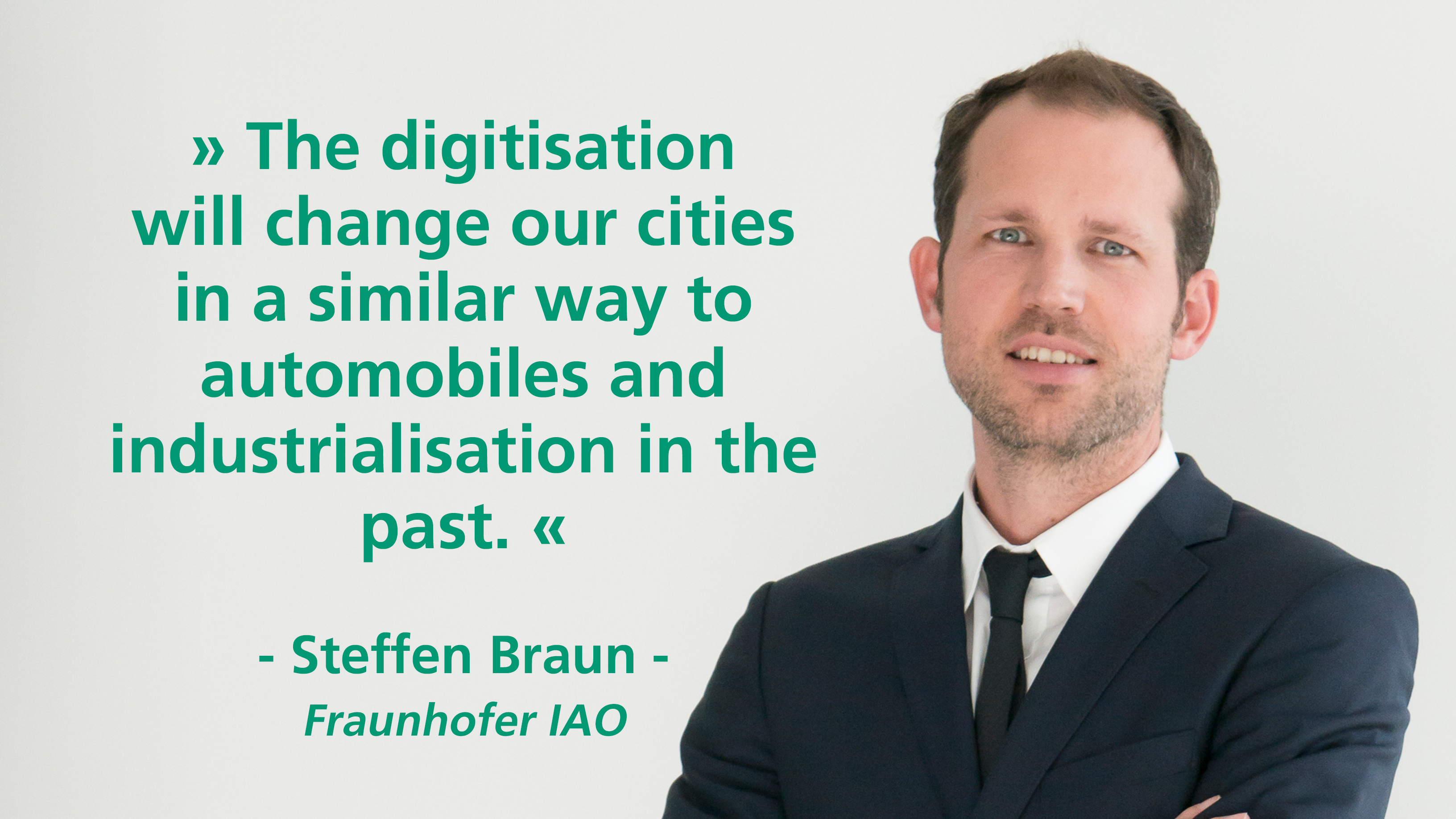
Municipalities must make digitisation a strategic task

Lesen Sie den Artikel hier auf Deutsch
27-Apr-2017
A joint study by the BBSR, PwC and Fraunhofer IAO clearly shows: municipalities must make digitisation a strategic task to remain independent and empowered. They must address changes in the economy to be able to offer companies an attractive, networked environment. And they must have all population groups on board on the way to a Smart City – even those that are already unable to cope with today’s digital world. The results are being fed into the Smart City Charta for Germany.
It is essential for cities and municipalities to develop and use IT and data skills to be able to maintain their independence and empowerment in the digital world. That is the result of a joint study on the key influencing factors of a Smart City by the Federal Institute for Research on Building, Urban Affairs and Spatial Development (BBSR), PricewaterhouseCoopers WPG GmbH (PwC) and the Fraunhofer Institute for Industrial Engineering (Fraunhofer IAO). The results were produced based on the following four focuses:
• Digitisation and the transformation of the urban structure of actors
Municipalities must address the question of who will use which influences to steer the future of our cities. Cities must establish central contacts and facilities for digital themes and data, develop strategies and skills, regard data sovereignty as a key location factor and transform municipal companies into centres of digital competence.
• The new urban economy – structural transformation in times of digitisation
Municipalities must be sensitized towards future economic requirements. They require more flexible urban planning, central coordination and steering units, a municipal data and communications infrastructure, new cooperation and funding models, and digital education networks.
• The wisdom of many – civic participation in the digital age
Digital technologies and services provide new ways for municipalities to integrate the knowledge and wishes of citizens into their planning processes. They must use big data, exploit digital participation potential on a case-by-case level, involve existing civic initiatives, create new forms of incentive and strengthen inter-municipal exchange.
• Mind the Gap – digital integration forms the basis of Smart Cities
Municipalities have the task of ensuring that all population groups are able to participate in the Smart City. They must break down barriers using new technologies, think in user-friendly and locally specific ways, ensure data security, develop digital education offers, expand e-government and encourage innovative companies.
The study carried out as part of the “Experimental Housing and Urban Development” programme by the Federal Ministry for the Environment, Nature Conservation, Building and Nuclear Safety (BMUB) is divided into four publications that can be downloaded at www.bbsr.de. Interim results have already been taken on board by the dialogue platform Smart Cities, which the BMUB set up as part of the interministerial working group “Sustainable urban development from a national and international perspective” (“Nachhaltige Stadtentwicklung in nationaler und internationaler Perspektive”, IMA Stadt). The results of the study are taken into account in developing a Smart City Charta for Germany.
Opinions about the study

Harald Herrmann, BBSR Director
“Urban policy must integrate new technologies into planning measures and use them for an ecologically, socially and economically balanced urban development policy. The aim is to provide as many people as possible with simple access to new technologies and break down barriers. It is the only way to intensify civic participation and counteract digital division.”

Steffen Braun, Head of Business Unit Mobility and Urban Systems Engineering
“The digitisation of the economy and society will change our cities and communities in a similar way to automobiles and industrialisation in the past. Agility and innovative drive will become new key competences for digital transformation with respect to city administrations.”